Description
ABSTRACT
The Choice of Foreign Law in International Commercial Arbitration: Issues and Problems
Brown Umukoro*
International Commercial Arbitration has begun to snowball with the increase in international trade and the crave for foreign investment. This trend is not without its problems. It has been observed that most investors involved in transnational businesses, in desiring to arbitrate outside the seat of the dispute, look forward to certain conveniences and comfort as the basis for choosing a particular set of laws or the laws of a particular country to govern the arbitration. This is done most time without necessarily giving a thought to the details of such laws or possible demerits inherent in the chosen law having regard to the nature of the business. This paper principally examines the issues and problems which are particularly associated with the choice of a foreign seat and foreign laws of arbitration. Some of these challenges include a situation where the State or the country where the arbitration is to be held has some national interest in the outcome of the award or is even a party to the arbitration or some of the laws are unfair having regard to the nature of the trade between the parties. Again, a country where the arbitration is to be held or whose laws are chosen by the parties may change her laws during the pendency or before the commencement of the arbitration against the original intendment behind the choice. In discussing these challenges, the paper focuses on the choice of laws of the United States and England as a case study against the background of arbitration having substantial affiliation with Nigeria.
INTRODUCTION
The choice of which law to apply to arbitration is an issue more fundamental in international commercial arbitration than in domestic arbitration. In a purely domestic arbitration in Nigeria, the applicable law will usually be Nigerian law, unless otherwise expressly agreed by the parties. However, in international commercial arbitration, two or more different national laws or systems of law may be applicable to the substance of the transaction thereby requiring parties to agree on the law of which country should govern the arbitration. International arbitral rules generally allow parties to an agreement containing an arbitration clause to choose the substantive law that will govern the dispute.1 The parties may agree on the substantive and the procedural law of a particular jurisdiction in the desire to obtain certain advantages and may specify in addition that “general principles of law”2 shall apply in the belief that the choice will ensure neutral outcomes or secure special benefits. The parties may not consider if there are uncertainties in the content of the chosen
* LL.M (Uniben), BL. Lecturer, Department of Commercial & Property Law, Faculty of Law, Delta State University, Oleh Campus
- A. Redfern and M Hunter, Law and Practice of International Commercial Arbitration (Sweet & Maxwell, London 1986) 77-78 cited in General Principles of Law in International Commercial Arbitration accessed 27 April 2016. (Hereinafter referred to as General Principles of Law)
- Sometimes, in the desire to cover possible loopholes which may be present in the particular national laws, parties may decide further that general principles of law should apply. However, “when the parties clearly designate the substantive law of a particular jurisdiction, there is little room for the application of general principles of law. Nor would there be much justification for the imposition of such principles, as the agreement by the parties on an explicit, developed national law exhibits a common understanding of or familiarity with such law, as well as an intention to be bound specifically to a relatively inflexible standard”. See ‘General Principles of Law in International Commercial Arbitration’ accessed 27 April 2016

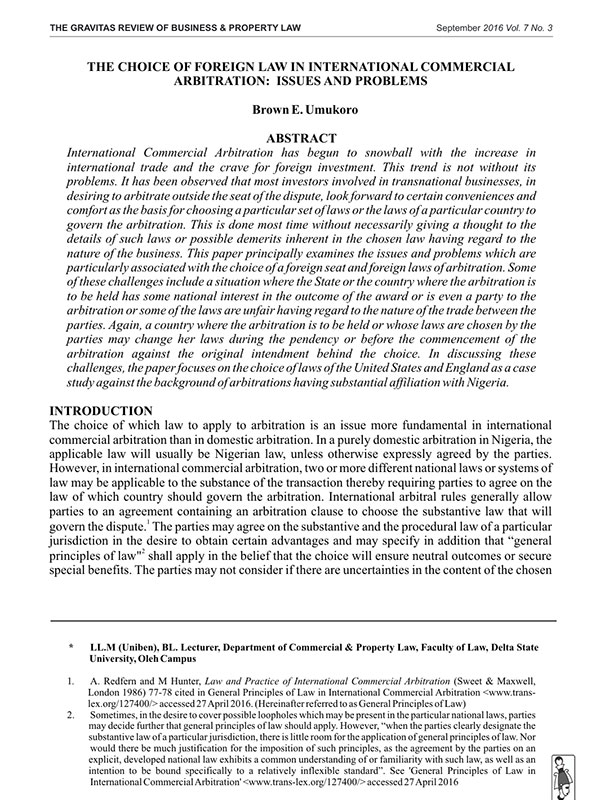
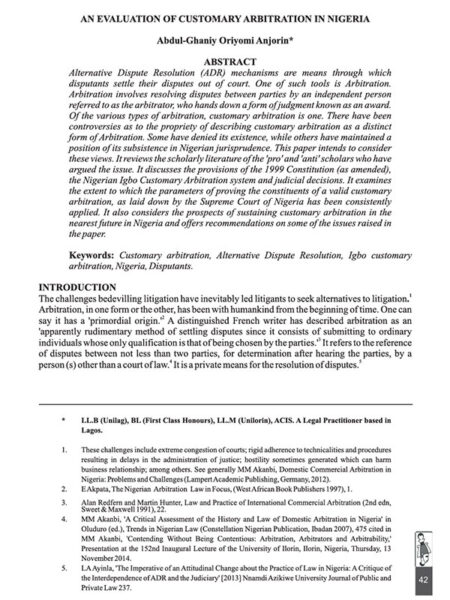
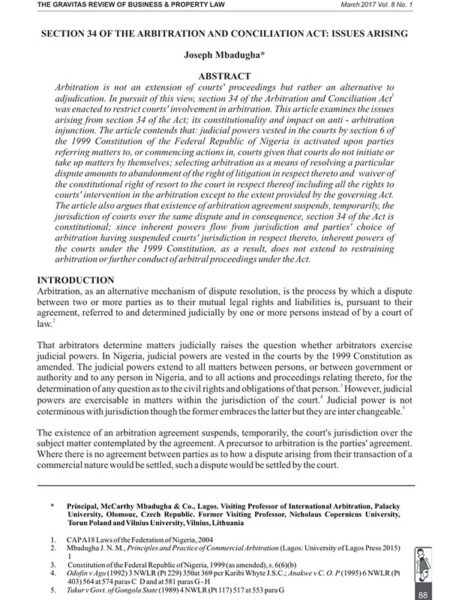
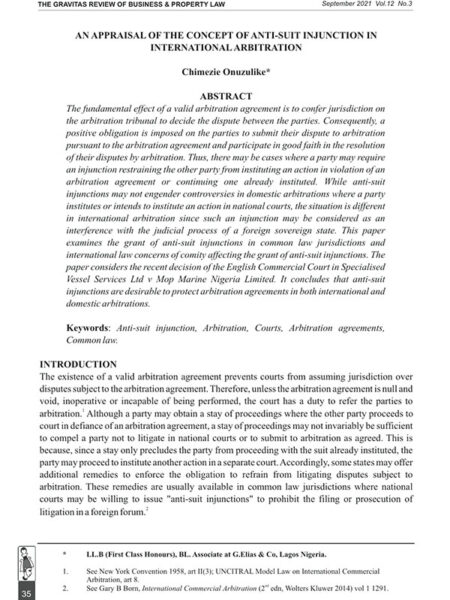
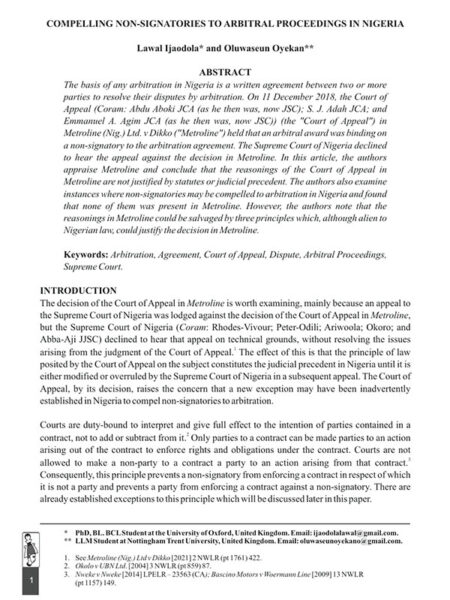


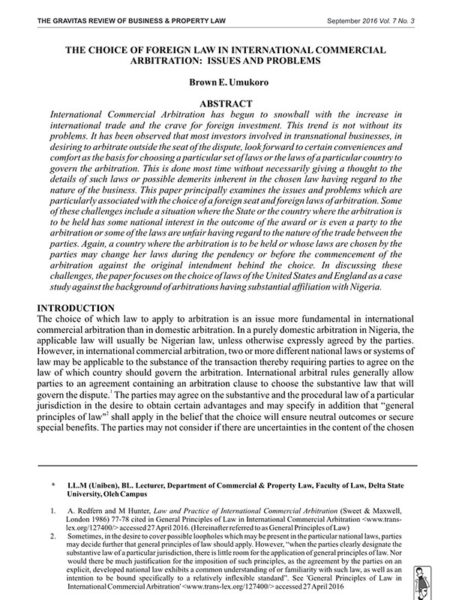
Reviews
There are no reviews yet.